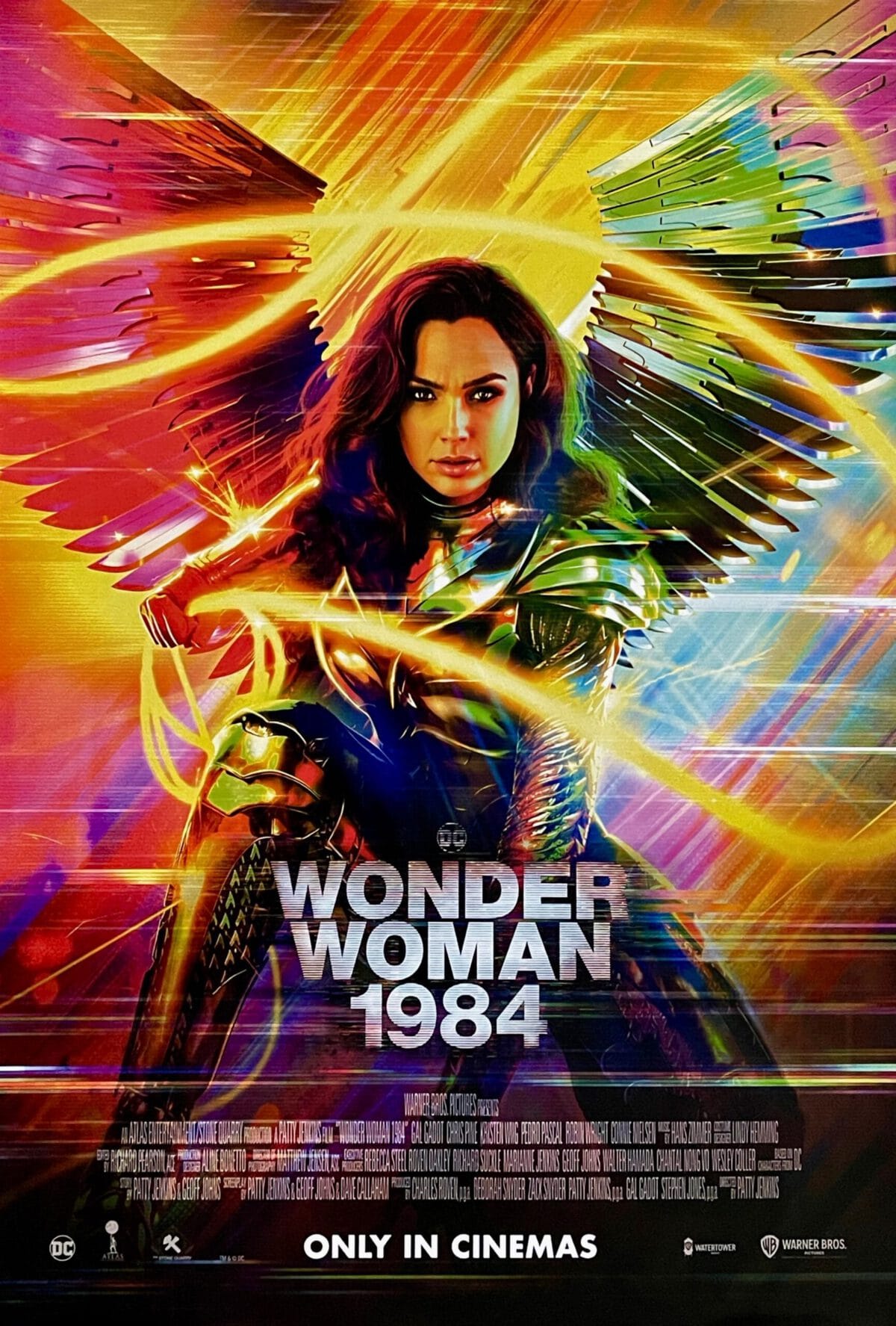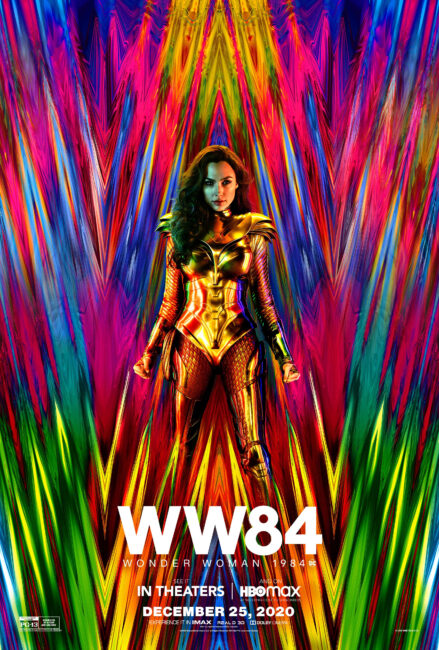Some Spoilers
Part of my DCEU Rewatch. First Watch? YES.
I keep wanting to think that WW84 is a bad movie, but the fact is that it’s bad mostly in comparison to the original Wonder Woman movie. It is a very mediocre movie, though, to the point where it’s as if setting it in 1984 rubbed off that particular decade’s silliness in TV shows (1984 was home to classics like Airwolf, V, Hunter, and Charles in Charge) onto the plotline here — which runs along at a breakneck pace, hoping the viewer won’t notice the duct tape and paper clips holding it together.
The original Wonder Woman captured both a strong mythology and a remarkable historical moment, all of it gorgeous and richly realized, coupled with a story about hope, heart, naivete, hatred, duty, and sacrifice. WW84 … doesn’t. Its emotions are, at best, greed and selfishness and the dangers that come from them, handled with the nuance of an Afterschool Special. WW84 just uses some of the props and pieces from the original film gave us to provide lots of chases, shooting, punching, and occasional tears.
More notes …
¶ The posters for this film were pretty — rich rainbow metallic / glass / neon color loveliness. That color loveliness is nowhere in the film.
¶ The initial sequence with young Diana competing in Amazon Ninja Warriors feels over the top, turning the the highly trained warriors into the Cirque du Soleil. There’s some sort of entitlement and self-gratification and cheating trope that’s supposed to relate to the decisions Diana and the world have to make later — but the connection never really gelled for me.
¶ The tone and period aesthetic are established by setting the initial “current day” action sequence in a shopping mall. Man, I remember those.
¶ Diana having a collection of old photos of her old friends who have since died sets the ground for how her relationship with the revenant Steve Trevor will go. That has a few good moments in the film — and Chris Pine does his utmost — but the personal relationship element gets squashed under a series of action sequences and dealing with the Bad Guy, punctuated by melodrama. All that dilutes what should be the heart of this movie: Diana is alone and isolated and unhappy, and has chosen that course (and will remain on it until we get to at least Batman vs Superman, decades in the future).
She does, eventually, “gets over it” to a degree, by letting Steve go — but the final scenes show that she is now alone and isolated and accepting, rather than unhappy. Not a great improvement. I mean — she couldn’t have invited the body dude for some hot chocolate or something?
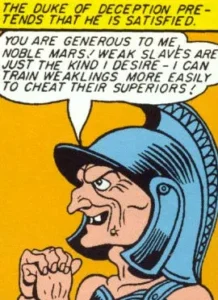
¶ Pedro Pascal IS Maxwell Lord (with an accent). I also insist on bonus points for actually saying the words “Duke of Deception” to myself way early in the film.
¶ Hit-on culture is something I am glad we have (largely) moved on from since 1984. Or, at least, is restrained by social and legal forces a lot more than it was.
¶ Something not touched on with Diana’s wish: what happened to the original guy (or his soul, or whatever) whose body and life Steve (Steve’s ghost?) takes over due to Diana’s wish? If Steve hangs around, what happens to his job, his rent check, his friends, his family? Heck, his soul? No, Steve staying in that body is never a long-term option, but nobody ever seems to realize that.
I also learned, in researching this review, that there was some criticism raised about what sort of hi-jinx Steve got into with his host body without the owner’s consent — from sex with Diana to getting into gunfights. The answer that this is a “body swap” trope, like Freaky Friday, is unsatisfying on a couple of levels, not least of which is where’s the other body that Steve’s new body got swapped into? A light scattering of old much over Belgium, as I recall …
¶ I do love that Diana lives in the Watergate.
¶ There’s a lot of namedropping going on in this film, with Simon Stagg and Bialya both showing up, even though there’s only passing similarity to their originals in the comics.
¶ So Diana fights crime (occasionally?), but zaps security cameras (in this pre-cellphone world) so that her identity remains a mystery. That’s because Superman, thirty years later, is supposed to be the dawn of (known) superheroes in the DCEU, but it’s still a bit goofy. If she’s swinging into action even once a week, enough people will eventually see it that the secret of her existence will become known.
¶ There’s a lot of madcap adventure that seems to happen in this film, to keep it all hurtling along faster than the characters (and viewers) can consider what’s actually happening. The whole trip to Egypt/Bialya feels distracting. Part of that is intentional, to keep the central characters chasing after things and distracted from the problems around (and within them), but it adds to that sort of mindless 80s action-adventure feel to the whole film.
¶ Whom did they steal that jet from (that Diana has a cardkey for the grounds)? Why did they steal it? Why are they in a plane that (a) really looks like it should require air masks (for a non-pressurized cockpit) and (b) really looks like it should not have anywhere near the range for a cross-Atlantic + cross-Mediterranian flight?
I mean, wouldn’t it be hysterical (and a scosh more realistic) if Diana’s Invisible Plane were a Herky Bird or something?
Also, flying through fireworks, even if you are invisible, is NOT recommended. Stupid, distracting padding.
¶ The big highway gun/truck fight feels like someone randomly filled in the blanks for “Insert big action sequence here.” I mean, it does begin to hint that Diana’s powers are waning, but it’s mostly ten minutes of vaguely Indiana Jones-style action.
Also … why do Diana’s powers fade? I initially thought that Barbara was gaining powers as Diana lost them, but it seems to be tied to her Steve wish. But why? Diana wished (silently) on the stone, so did the stone just take her most obvious asset in some weird way? Was Diana’s wish predicated on a sense that her powers made her an outsider with responsibilities that kept her apart from others, and therefore she needed to sacrifice those powers to get Steve back?
And how is it that the sacrifice for the wish is kept a secret until after it’s granted? The point of the Monkey’s Paw isn’t that “Oh, dear, I have gotten my dead son back, but it seems all my stocks and bonds are owned by the Monkey’s Paw now,” but, “Oh, dear, I have gotten my dead son back but I failed to ask for him back alive and recovered from rotting in the grave.” The unexpected twist.
The rules of the wishcraft are really unclear, and never actually addressed in the film, so it all become part of the sloppy plot magic.
¶ I appreciate the pseudo-Reagan in the White House, whose wish is for MOAR NUKEZ! It’s wildly stupid, but in keeping with the era.
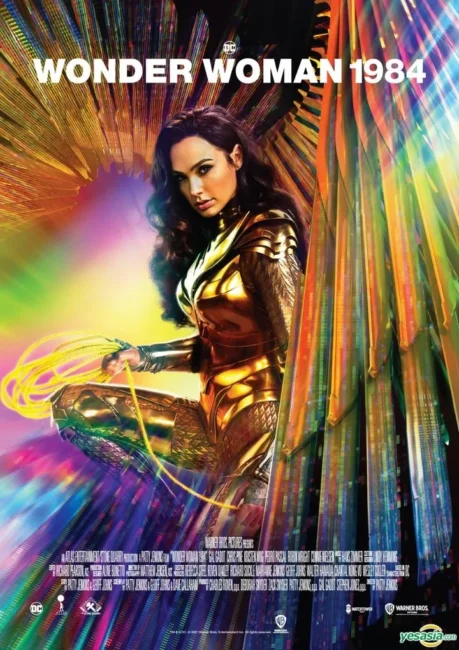
¶ Anton Chekhov ought to get writing credits for this one:
If there’s (out of nowhere) armor of an Amazonian warrior-martyr who gave up her life to protect humanity, up on the mantle in Act 1 …
or
If there’s a pilot giving instructions to a non-flying super-hero about how easy it is to fly planes, up on the mantle in Act 1 …
¶ Asteria’s armor is … just dumb. I mean, it’s modeled after the armor Alex Ross designed for “Kingdom Come,” so it’s not dumb in that way, but it’s never quite clear why Diana goes and gets it and puts it on. Except that it will add a new visual element to the impending battle against Cheetah. And then Cheetah rips the invulnerable golden wings to shreds, so now it’s just golden body armor Diana wears for the rest of the main action of the film. Dumb.
¶ Why didn’t Diana just take down the broadcast tower to cut off the broadcast?
¶ The Diana/Cheetah battle was not good CG. The team knew this, which is why it’s 100% at night and 50% under water.
¶ I do appreciate their seizing the 80s zeitgeist of personal improvement movements and “Why not more?” excessive consumerism. It was the most realistic aspect of the movie.
That said, Diana’s little speech about how the world is actually a beautiful place just as it is and we don’t need wishes to make it better is all well and good for an upper middle-class professional woman living in an expensive apartment in Washington, DC. A starving kid in Ethiopia or a war refugee in Afghanistan or a dying AIDS patient in New York City in 1984 might feel a leeeettle differently.
But, then, “Wishes Bad! No Wishes!” is a silly TV trope that dates back to the 60s with Bewitched and I Dream of Jeannie. It made no more sense then than than it does in 1984 or today. Wishes driven by anger or greed or envy or fear or selfishness are probably not going to be good wishes. With great power comes great responsibility, to quote a different comic book.
¶ The denouement credits scene was just the right level of cheesiness for this film.
In conclusion …
Net-net, this film was shallow, unfocused, and facile in the motivations of its characters, and heavily laden with action sequences that had only a passing connection with the narrative. In short, it was very 1980s.
Worse than that, though, there seems no reason for this film. The events impact neither the world (nobody in any other DCEU movie has mentioned the time when Everyone Got Their Monkey Paw Wishes And How Horrible That Was) nor the titular character. Diana can smile now, but she isn’t any more sociable. She’s been given a talking to by Steve about living life, but when we see her again thirty years later, she’s still isolated, cleaning statuary by day, punching bad guys at night, studiously solo.
So why, exactly, does this story deserve to exist, other than the fact that in the 1980s, TV was still episodic, and no matter what happened in one episode, it would have no impact on the next? That’s a lot of what this film feels like. And that’s one disappointment in WW84 too many.
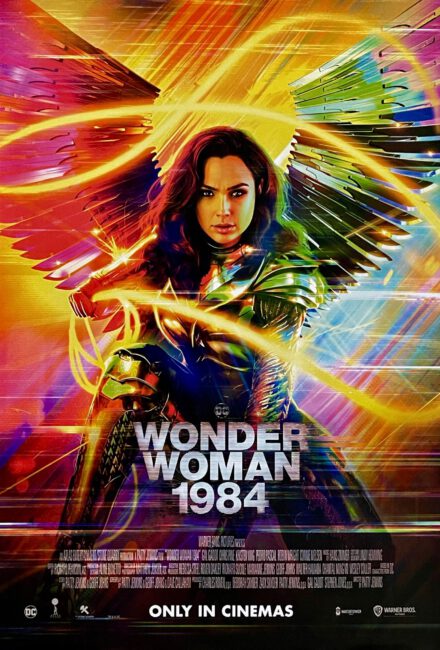
Do you want to know more?
- An earlier version of this review was posted on LetterBoxd.
- Wonder Woman 1984 (2020) – IMDb
- Wonder Woman 1984 – Wikipedia
